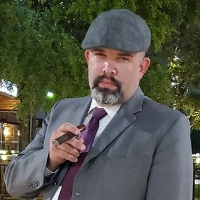 Greenwood DUI-DWI Lawyers, Texas
Greenwood DUI-DWI Lawyers, Texas
Sponsored Law Firm
-
 x
x

Click For More Info:
-
Law Office of Robert R. Jones III
2411 Emancipation Ave, Suite 202, Houston, TX 77004» view mapCriminal Defense Expert Representation for Reasonable Rates
If you need representation, call me 24/7.
800-883-8760
Sponsored Lawyers
1-7 of 7 matches
Criminal, DUI-DWI, Expungement, White Collar Crime, Juvenile Law
Attorney Timothy D. Godwin, the founding attorney of Godwin Law Firm, PLLC, brings a robust focus in criminal defense. With a Juris Doctor degree from Texas A&M, Timothy leverages his academic background and a sharp legal acumen to serve clients effectively. His practice areas address a wide range of legal scenarios, ensuring that each client receives thorough and attentive guidance. Primarily centered on criminal defense, Attorney Godwin works on matters including felonies, traffic tickets, expunctions and more. As a dedicated legal professional, Timothy is committed to understanding and addressing the unique needs of each case, providing tailored advice and robust defense strategies. To schedule your free consultation with the Decatur Criminal Defense Attorney, please fill out a form online or call us at 940-255-0000.
(more)Criminal, Juvenile Law, Expungement, DUI-DWI, White Collar Crime
Throughout a tenure exceeding sixteen years, Mr. Van Dyke has dedicated his legal prowess as the general counsel for factoring companies, commercial debt collection agencies, and credit repair entities. His work is primarily honed in collecting business-to-business debts utilizing receiverships to enforce Texas judgments effectively. He holds exclusive partnerships with several collection agencies who rely on his services solely within Texas. While acclaimed for his civil law practice, Mr. Van Dyke boasts a comprehensive background in criminal defense spanning his entire career thus far. Within the firm, he occupies the lead counsel position for felony cases, juvenile proceedings, and all matters stemming from Wise, Jack, Parker, Montague or Young County jurisdictions. Born and raised in Troy Michigan, Mr. Van Dyke completed his high school education at Lutheran High School Northwest in 1998 before pursuing academic endeavors at Michigan State University. With an aspiration to reside in Texas while aligning with institutions sharing parallel ideologies, he transferred to the University of Dallas in 2001 where he achieved his bachelor’s degree by December 2003. Commencing his legal studies at Stetson University College of Law in January 2004 cultivated both a Juris Doctor degree and a Certificate of Concentration in Advocacy by December 2006 . He successfully obtained admission to the Texas bar examination prior to graduation from law school; being officially sworn into practice less than two months post-graduation date. To schedule your initial consultation with the Denton, TX Criminal Defense Attorney, please visit online or call 940-382-1976.
(more)


 Robert Jones San Antonio, TX
Robert Jones San Antonio, TX AboutLaw Office of Robert R. Jones III
AboutLaw Office of Robert R. Jones III Practice AreasSpecializations
Practice AreasSpecializations



